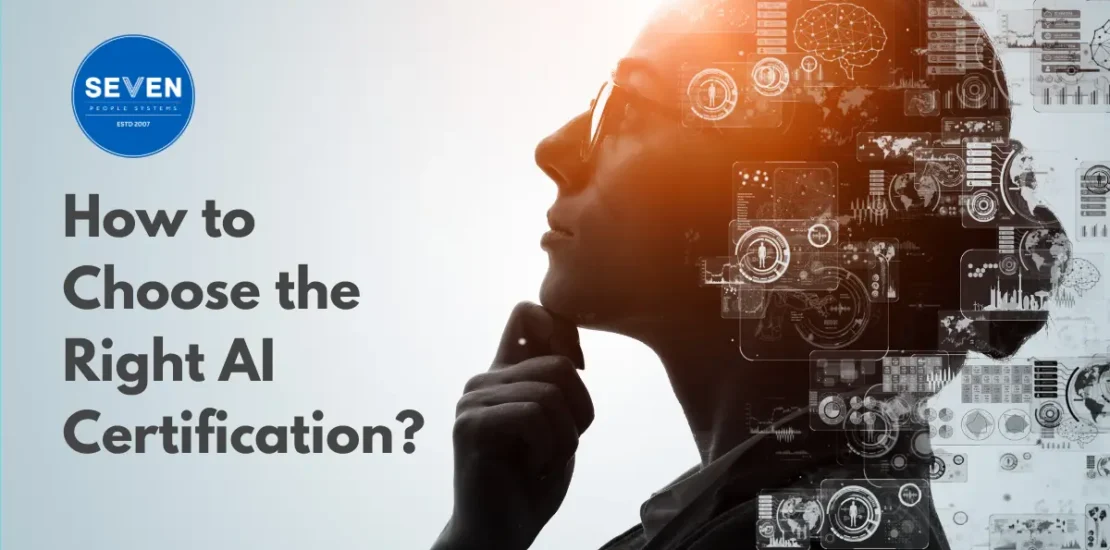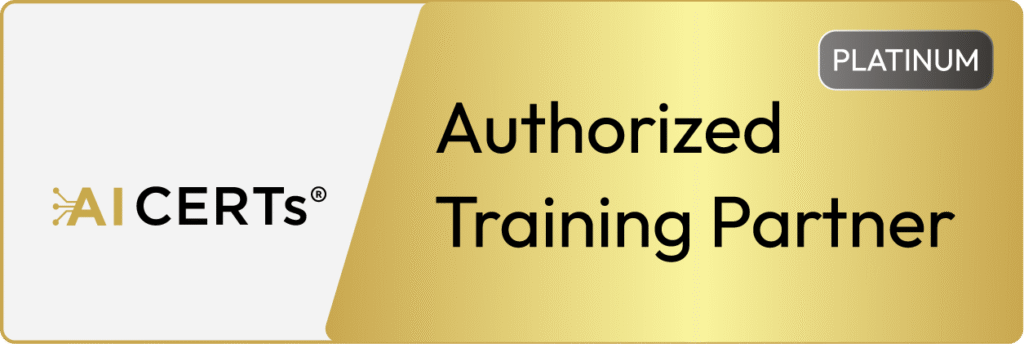How to Choose the Right AI Certification
- August 24, 2025
- Posted by: info@seven.net.in
- Category: Talent Management

A Complete Guide for Professionals looking for a tips to choose the right AI Certification in 2025
Artificial Intelligence is no longer an emerging buzzword; instead, it has become the defining technology of this decade. From generative AI models like GPTs reshaping content creation to machine learning systems transforming healthcare diagnostics, AI is now woven into the fabric of nearly every industry.
Yet, while AI has gone mainstream, a new challenge has emerged: how do professionals prove they can work with AI responsibly and effectively? Although degrees take years to complete and on-the-job exposure varies widely, AI certifications strike a balance between speed, credibility, and recognition.
However, the certification market is crowded. There are free courses from tech giants, prestigious university diplomas costing thousands, and new providers promising “job-ready” skills within weeks. Consequently, for professionals who want to future-proof their careers, choosing the right AI certification in 2025 feels overwhelming.
Therefore, this guide will provide clarity. In the next sections, we will explore:
- Why AI certifications matter more than ever.
- The different types of certifications available today.
- Key factors to evaluate before enrolling.
- Comparisons between top providers.
- Common mistakes and myths.
- Success stories from professionals worldwide.
- And finally, why Seven People Systems (AI Certs ATP) stands apart as a globally trusted, ISO-aligned provider.
By the end, you will know exactly how to choose the right AI certification for your career path, whether you are an engineer in Mumbai, a marketing manager in Dubai, or a senior executive in Bengaluru.
Why AI Certifications Matter in 2025
The Explosive Demand for AI Skills and Jobs
The numbers speak for themselves:
- LinkedIn reported a 650% growth in AI-related job skills in the past five years.
- The World Economic Forum (WEF) predicts 97 million new AI-related roles will emerge globally by 2025.
- McKinsey estimates that organizations adopting AI at scale will see productivity gains of up to 40%.
As a result, demand is no longer limited to data scientists. For instance, HR professionals need AI for workforce analytics, marketers rely on AI for personalization, and supply chain managers use predictive logistics. Moreover, executives are expected to lead organizational AI transformations.
Because of this surge, certifications have become essential. Unlike informal self-learning, AI certifications provide a formal, structured pathway to develop the skills employers seek.
From Optional to Essential – AI in Every Industry
A few years ago, knowing AI was considered a niche advantage. Today, however, it is a baseline expectation. Consider these examples:
- Healthcare: AI supports early disease detection and personalized treatments. Consequently, hospitals are hiring clinicians trained in AI tools.
- Finance: Fraud detection and algorithmic trading depend on AI. Therefore, banks increasingly prefer managers with AI literacy.
- Retail: Customer journeys are shaped by AI-driven personalization. Hence, marketers need AI certifications in campaign management.
- Public Sector: Governments, especially in the UAE and India, have launched national AI strategies. As a result, civil servants are being upskilled.
Geographically, demand is accelerating:
- India is reskilling at scale to become a hub for AI development.
- UAE is embedding AI in its Vision 2031 agenda.
- US and Europe are prioritizing ethical AI, regulation, and enterprise adoption.
In conclusion, professionals with recognized, accredited certifications are more in demand than those who only claim “self-taught” expertise.
The Certification Advantage – Careers, Salaries, and Recognition
Why does a certificate matter in an AI-first world? Quite simply, certifications provide proof of competence when employers lack the time or tools to validate skills directly.
- Salaries: Professionals with certifications report increases of 20–40%, particularly in mid-career roles.
- Employability: Recruiters often filter applications by keywords such as “Google AI Certification” or “ISO-aligned AI Certified.” Without these, candidates risk being overlooked.
- Global Portability: Accredited certifications—especially those aligned with ISO standards—are recognized across regions. For example, a certificate earned in Dubai is valid in London or Singapore.
Most importantly, certifications build confidence. Structured, credible programs not only teach knowledge but also empower professionals to apply AI effectively.
Types of AI Certifications You Can Pursue
To make an informed choice, you first need to understand the different categories of AI certifications. Because each is designed for specific needs, knowing the distinctions will prevent wasted effort.
Beginner vs Advanced AI Certifications
- Beginner AI Certifications
These programs focus on fundamentals such as machine learning basics, natural language processing, and AI ethics. Therefore, they are ideal for students, fresh graduates, and non-technical professionals.
Example: Google’s AI for Everyone or Microsoft’s AI Fundamentals. - Advanced AI Certifications
In contrast, advanced programs dive into deep learning, reinforcement learning, TensorFlow, PyTorch, and LLM deployment. Consequently, they are designed for data scientists and engineers.
Example: MIT’s Professional Certificate in Machine Learning and AI.
If you are new, start with beginner certifications. Conversely, if you already code in Python or build models, advanced certifications will add credibility.
Technical vs Non-Technical Tracks
- Technical Certifications emphasize coding, algorithms, and frameworks. For example, the TensorFlow Developer Certificate validates model-building skills.
- Non-Technical Certifications cover AI strategy, governance, and case studies. As a result, they are perfect for managers, marketers, and HR leaders.
Therefore, choosing between technical and non-technical depends entirely on your role.
Executive & Leadership AI Programs
Executives don’t need to code, but they must lead AI adoption responsibly. These programs teach leaders how to identify opportunities, manage risks, and allocate budgets.
For example, MIT Sloan’s AI: Implications for Business Strategy focuses on AI leadership. Consequently, executives can make informed decisions without technical coding.
Role-Based Certifications
Similarly, role-based certifications are becoming more popular:
- AI in HR: Hiring automation and bias reduction.
- AI in Marketing: Customer segmentation and predictive analytics.
- AI in Finance: Fraud detection and credit scoring.
- AI in Supply Chain: Forecasting demand and optimizing logistics.
Because they are tailored, these certifications allow professionals to apply AI directly to their domain.
Free vs Paid Certifications
- Free Certifications are accessible and useful for awareness. However, they often lack credibility.
- Paid Certifications are structured, accredited, and globally recognized. Therefore, they deliver stronger ROI.
In short, free courses test the waters, while paid, accredited certifications unlock career growth.
Key Factors to Consider Before Choosing an AI Certification
After identifying certification types, you must evaluate quality factors. These will help you avoid wasted time and money.
Accreditation & Global Recognition
Most importantly, check accreditation. Without ISO alignment, your certificate may carry little weight outside its issuing platform.
Curriculum Relevance & Depth
Secondly, ensure the curriculum covers not only tools but also ethics, governance, and industry-specific case studies.
Real-World Application
Thirdly, prioritize programs with projects, labs, and case studies. For instance, a GitHub portfolio demonstrates applied skills far better than a PDF certificate.
Delivery Format
Additionally, consider whether the program is online, hybrid, or in-person. For working professionals, online or hybrid is usually most practical.
Time Commitment
Equally relevant, durations range from 4-week intensives to 12-month diplomas. Choose what matches your availability.
Costs & ROI
Finally, weigh costs against expected returns. Professional certifications like Seven People Systems AI Certs strike the best balance between affordability and recognition.
Comparing Top AI Certification Providers
With countless programs available, comparisons are essential. Below, we analyze the four main categories.
University-Led Certifications
Prestigious but expensive. While respected, they are often theoretical and time-intensive.
Online Platforms
Affordable and flexible. However, they lack deep recognition.
Professional Bodies
ISO-aligned certifications balance affordability, depth, and credibility.
Seven People Systems AI Certs
Unlike generic programs, AI Certs is ISO-aligned, role-based, ethics-focused, affordable, and globally recognized. Therefore, it addresses the gaps left by universities and online platforms.
The Seven People Systems (AI Certs ATP) Advantage
ISO-Aligned, Globally Trusted
Because ISO standards ensure credibility, AI Certs offers global portability.
Ethics, Governance, and Bias
Unlike most programs, AI Certs integrates ethics and governance. Consequently, graduates are prepared for responsible AI use.
Tailored Career Pathways
Whether you are a student, mid-career professional, or executive, AI Certs has role-specific tracks. Therefore, no one wastes time learning irrelevant skills.
Career Outcomes
Graduates report promotions, transitions into AI strategy, and salary increases. Thus, the program delivers measurable ROI.
Affordability Without Compromise
AI Certs is priced for accessibility in emerging markets while maintaining global recognition. As a result, it democratizes AI education.
Check out our range of AI Certifications
- Uncategorized1 product
- AI Business Certifications14 products
- AI Cloud Certifications2 products
- AI Data & Robotics Certifications3 products
- AI Design and Creative Certifications2 products
- AI Development Certifications4 products
- AI Essentials Certifications3 products
- AI Learning & Education Certifications2 products
- AI Security Certifications6 products
- AI Specialization Certifications3 products
Common Mistakes to Avoid
- Chasing hype instead of recognition.
- Ignoring accreditation.
- Overlooking practical application.
- Choosing based only on price.
- Failing to align certification with career goals.
Myths vs Facts
- Myth: Only techies need AI certifications.
- Fact: Non-technical roles benefit equally.
- Myth: Free courses are enough.
- Fact: Employers value accredited certifications.
- Myth: Certifications guarantee jobs.
- Fact: They improve employability, not certainty.
Case Studies
- Priya (India): Beginner AI Cert (AI Analyst role in 6 months).
- Ahmed (UAE): Executive AI Cert (Head of AI Strategy promotion).
- Sarah (Europe): Business Leaders Cert (Promoted to Chief Transformation Officer).
These examples prove that certifications are career accelerators.
The Future of AI Certifications (Toward 2030)
Looking ahead, certifications will:
- Align with global regulations.
- Offer personalized pathways.
- Expand into AI + Quantum, AI + Sustainability.
- Shift toward micro-credentials.
- Achieve universal standardization.
Since AI Certs already integrates modular, ethical, ISO-aligned practices, it is future-ready.
Conclusion
AI is not merely a trend; it is a career-defining force. Choosing the right certification is one of the most impactful investments you can make in 2025.
In summary, evaluate accreditation, curriculum, practical application, and alignment with career goals. If you seek a certification that balances affordability, global recognition, and ethics, the answer is Seven People Systems (AI Certs Authorized Training Partners in India)
Reach us for in-house workshops or for special discounts on bulk purchases
Email : info@seven.net.in | Phone : +91.8104856725


